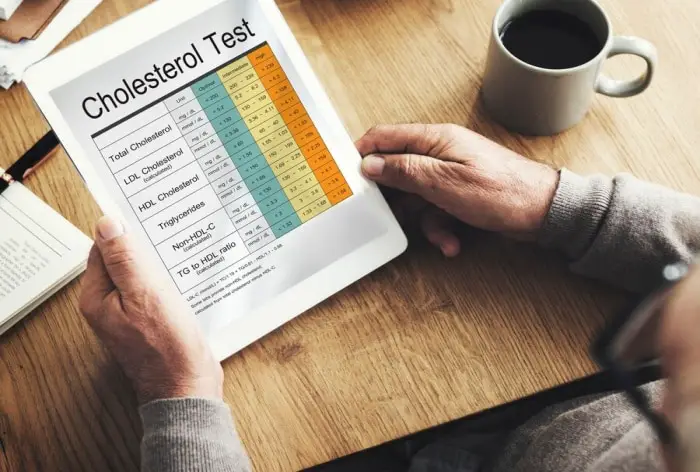Good Cholesterol: 6 Everyday Habits to Increase HDL Levels and Protect Your Heart
When it comes to heart health, discussions often revolve around lowering high cholesterol levels. However, it is equally important to focus on increasing good cholesterol. Cholesterol, a waxy substance found in our cells, can lead to plaque buildup in coronary arteries, disrupting the flow of oxygen-rich blood to the heart muscle. There are two types of cholesterol: high-density lipoprotein (HDL), known as good cholesterol, and low-density lipoprotein (LDL), known as bad cholesterol. While it is crucial to lower LDL cholesterol, improving HDL cholesterol is equally important for heart health.
Methods to Raise Good Cholesterol Levels
1. Healthy Diet
Diet plays a crucial role in cholesterol buildup. To increase HDL levels, incorporate foods high in unsaturated fats, omega-3 fatty acids, and dietary fiber. These include olive oil, avocados, nuts, fatty fish like salmon, and whole grains. Additionally, consuming foods rich in antioxidants, such as fruits and vegetables, can also contribute to raising good cholesterol levels.
Related: Learn more about the benefits of a healthy diet on heart health from heart.org.
2. Regular Physical Activity
A sedentary lifestyle is a major contributor to high LDL cholesterol levels. Engaging in physical exercise is crucial for increasing HDL cholesterol levels. By burning calories through regular exercise, you can lower bad cholesterol while simultaneously boosting good cholesterol. Aim for at least 30 minutes of moderate-intensity exercise every day, such as brisk walking, jogging, cycling, or swimming.
Related: Find helpful exercise tips and workout plans on Mayo Clinic.
3. Weight Management
Maintaining a healthy weight is essential for maintaining good cholesterol levels in the body. Obesity is strongly linked to high cholesterol levels, which increases the risk of heart attack. Specifically, abdominal fat is particularly harmful. Focus on cutting belly fat through a combination of a healthy diet and regular physical activity. Consult a healthcare professional for personalized guidance and support if needed.
Related: Discover effective weight management strategies and tips on National Institute of Diabetes and Digestive and Kidney Diseases.
4. Quit Smoking
Smoking not only harms overall health but also suppresses HDL cholesterol levels. Quitting smoking is crucial for improving HDL levels and reducing the risk of various health problems, including heart disease. Seek support from healthcare professionals or join smoking cessation programs to increase your chances of successfully quitting smoking.
Related: Access helpful resources and support to quit smoking from Smokefree.gov.
5. Limit Alcohol Intake
Excessive alcohol consumption can contribute to the breakdown of triglycerides and cholesterol. To lower the buildup of bad cholesterol, it is important to limit alcohol intake. Moderate alcohol consumption is generally defined as one drink per day for women and up to two drinks per day for men. However, it is always advised to consult with a healthcare professional for personalized guidance, taking into consideration individual health conditions and medications.
Related: Learn more about the effects of alcohol on heart health from the Centers for Disease Control and Prevention (CDC).
By incorporating a healthy, high-protein, and fiber-rich diet, combined with regular physical activity and lifestyle modifications like quitting smoking and limiting alcohol consumption, you can naturally increase your HDL cholesterol levels. Prioritizing good cholesterol leads to a healthier heart and reduces the risk of heart disease.

